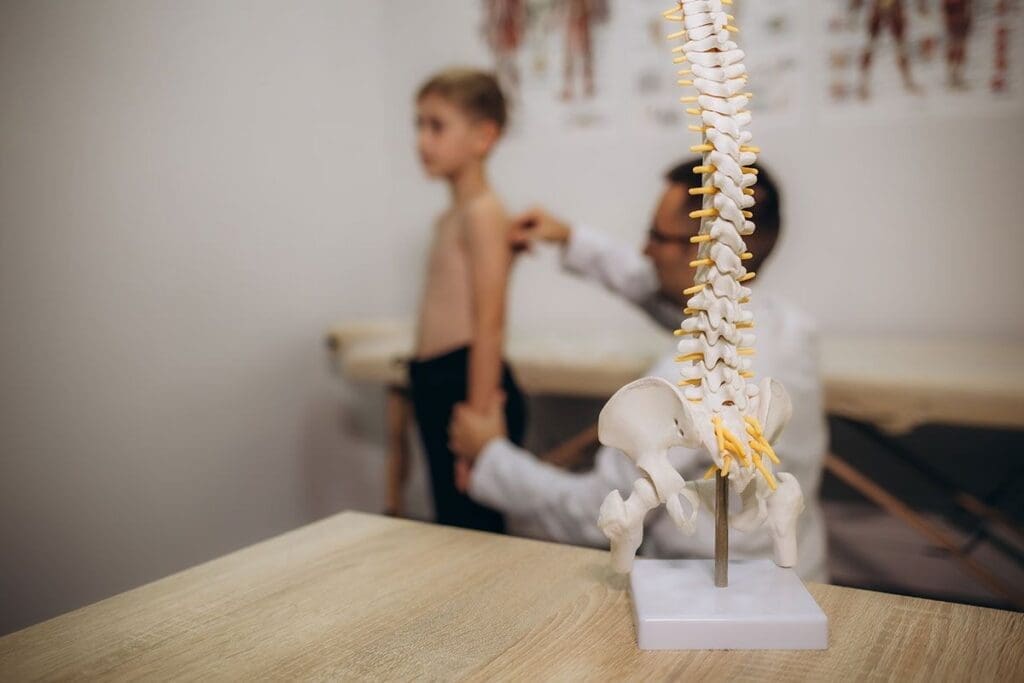Last Updated on November 24, 2025 by
Pediatric surgery is special care for babies, kids, and teens. It deals with many issues, like congenital anomalies and injuries that need surgery.

This field offers a wide range of surgeries for young patients. Pediatric surgical teams are key in helping kids worldwide.
Pediatric surgery is a special field that needs a deep understanding of children’s needs. It covers a wide range of surgeries for kids, from birth to teens. These surgeries deal with many issues, like birth defects, injuries, and cancers.

Pediatric surgeons give specialized care to young patients. They know how to handle the different stages of child development. They also have the skills to handle complex surgeries with care and precision.
Children are not just small adults. Their bodies are growing, and they react differently to surgery. So, pediatric surgeons get special training to care for them.
Surgery for kids is very different from surgery for adults. Pediatric surgeons need to be good at handling these differences. They use special techniques and tools for kids.
By understanding these differences, pediatric surgeons can give top-notch care to kids. They meet the unique needs of infants, children, and teens.
Pediatric surgeons are key in treating many conditions in kids. These include birth defects, injuries, and cancers. We’ll look at five common conditions they handle.
Congenital anomalies happen during fetal development. Examples are heart defects and a cleft lip. Pediatric surgeons fix these using new, less invasive methods.
Children often get hurt because they’re curious. Trauma can cause many injuries, like broken bones. Pediatric surgeons team up with others to care for injured kids.
Children can get cancers like neuroblastoma and leukemia. Pediatric surgeons help diagnose and treat these. They work with oncologists to plan the best treatment.
Conditions like appendicitis and abscesses are common in kids. Pediatric surgeons use special techniques to treat these. They aim for quick recovery with less pain.
Understanding these conditions and the role of pediatric surgeons is important. They provide vital care for kids, improving their lives. Whether it’s fixing birth defects or managing injuries, their work is critical.
Pediatric surgeons do a lot of things. They take care of kids before, during, and after surgery. They use special surgical techniques for kids, not adults.
Pediatric surgeons use tests like ultrasound and MRI to check kids’ health. They plan the surgery carefully with the family. They make sure everything is ready for the surgery.
Getting ready for surgery is very important. The surgeon and team help the child and family feel calm. They work with other doctors and nurses to make sure the surgery goes well.
Pediatric surgeons use special surgical techniques for kids. These methods are smaller and safer for young bodies. They use less invasive surgery to help kids heal faster and with less scarring.
According to HealthyChildren.org, these surgeons get a lot of training. They learn how to do these special surgeries to help kids get better.
After surgery, pediatric surgeons watch over the kids closely. They manage pain and look for any problems. They also check in with kids over time, even after they’ve healed.
They work with a team to help kids get better. This team includes other doctors, nurses, and therapists. By caring for kids from start to finish, pediatric surgeons make a big difference in their lives.
Every year, nearly 3.9 million surgeries are done on kids in the United States. This shows how important pediatric surgery is. It’s not just in the U.S. – millions of surgeries are done on kids all over the world every year.
Pediatric surgery deals with many conditions. This includes things like birth defects, injuries, and cancers in kids.
In the United States, about 4.7% of kids have surgery each year. That’s around 3.9 million surgeries for kids aged 0–17. This shows how vital pediatric surgeons are in the healthcare system.
These surgeries range from fixing birth defects to treating injuries and cancers in kids. The variety and complexity of these surgeries highlight the need for skilled pediatric surgeons.
While the U.S. has good pediatric surgery care, there are big gaps worldwide. Many places don’t have enough pediatric surgery services. This leads to untreated conditions and higher death rates in kids.
There are efforts to improve pediatric surgery care globally. This includes training surgeons and improving healthcare facilities.
Groups and initiatives worldwide are working to close the gap in pediatric surgery care. They’re teaming up with healthcare providers, governments, and non-profits. Their goal is to improve training, facilities, and access to surgery for kids.
Pediatric surgery is always getting better, thanks to new technology and techniques. For example, less invasive surgeries are becoming more common. This means kids recover faster and have less scarring.
Looking ahead, pediatric surgery will keep being a key part of healthcare. Research, new medical tech, and efforts to improve global access will shape the future. This will ensure kids get the best surgical care possible.
Becoming a pediatric surgeon is a tough journey. It requires a lot of hard work and a strong educational base. It’s a path filled with dedication and challenges.
The first step is undergraduate studies in a science field. Then, you go to medical school to get an MD or DO. In medical school, you learn a lot about medicine and might see different surgical areas, like pediatric surgery.
After medical school, you need to do a general surgery residency. This program teaches you the basics of surgery. It’s key for learning the skills needed for pediatric surgery.
After the general surgery residency, you must get a pediatric surgery fellowship. This training is all about surgery for kids. It prepares you to handle complex cases in pediatric surgery.
To be a certified pediatric surgeon, you need board certification from a medical board. Pediatric surgery is always changing. So, continuing education is vital to keep up with new techniques and discoveries.
The journey to becoming a pediatric surgeon is long and hard. But for those passionate about helping children, it’s a very rewarding career.
We’ve looked into what pediatric surgery is, its importance, and the role of pediatric surgeons. We also talked about the education needed to work in this field. Pediatric surgery keeps getting better, thanks to new techniques and technology.
This field is always growing, with new ways to help kids. Pediatric surgeons play a key role in helping children who need surgery. Their work is vital for kids’ health.
As we keep innovating, pediatric surgery will only get better. This means kids will get the best care possible. The future of pediatric surgery looks bright, and we’re excited to see what’s next.
Pediatric surgery is a special field of surgery. It focuses on kids from birth to teens. It deals with many issues, like birth defects, injuries, and diseases that need surgery.
A pediatric surgeon does many things. They do tests, care for kids before surgery, and perform surgery. They also take care of kids after surgery, keeping their special needs in mind.
It takes a lot of time and effort to become a pediatric surgeon. You need to finish college, go to medical school, and do a residency and fellowship. It’s about 15 years after high school.
Pediatric surgeons treat many conditions. This includes birth defects, injuries, cancers, and infections like appendicitis. They also treat diseases like inflammatory bowel disease.
In the U.S., about 3.9 million pediatric surgeries are done every year.
Pediatric surgery makes a big difference worldwide. Millions of surgeries are done every year. But, there are big gaps in care, mainly in poor countries.
Pediatric surgeons get special training. They do a general surgery residency and a pediatric surgery fellowship. This prepares them to care for young patients.
Pediatric surgery is very different from adult surgery. It must consider the child’s age and size. This requires special techniques and approaches.
Subscribe to our e-newsletter to stay informed about the latest innovations in the world of health and exclusive offers!